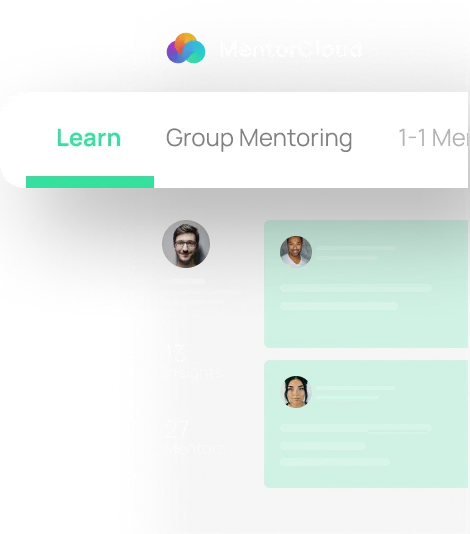7 effective habits that define a Great Mentor
Performance MeasurementMentorship is a critical factor in engaging people within an organization. The higher engagement has a direct impact on the retention of employees and ROI for businesses. Having a trustful, exciting, and open mentor provides immense professional and personal benefits for employees.
According to an Emerging Workforce Study, 35%of employees without regular mentoring plans start looking for other jobs within 12 months of joining an organization. 68% of millennials in an organization are likely to stay for five years or more with an organization if they have a mentor. However, only 61% of employees who received mentoring found them to be effective.
Every successful mentoring relationship is based on specific characteristics exhibited by mentors towards mentees, leading to mutual growth and success.
Here are some habits that define a successful mentor.
- Active Listening
Mentors must be active listeners. They must give their undivided attention during interaction and engage in asking relevant and critical questions. Questioning facilitates a better understanding of the topic and paves the way for further plans and potential growth opportunities. Listening should incorporate verbal and non-verbal gestures.
- Venturing out of the comfort zone
Both mentors and mentees must challenge each other out of their comfort zones. Growth and development cannot take place where there is stagnation. Mentors must be able to think from different perspectives and challenge the mentee to think outside the box. Stepping out of comfort zone helps change the mindset and builds confidence for both the mentor and mentee.
- Open to learning
Mentorships are a great learning opportunity, not only for the mentees but also for mentors. Many times, mentees come up with problem statements beyond a mentor's understanding and area of expertise. It helps mentors expand their skills and knowledge to guide the mentees in the right direction and provide an excellent opportunity for mentors to broaden their knowledge.
- Regular Interaction and Continuous Feedback
Having regular contact and scheduled meetings between mentor and mentee is a critical factor in maintaining progress and growth. Apart from regular meetings, impromptu emails to share a fascinating insight or progress can facilitate seamless and timely knowledge sharing. Mentors must utilize these regular meetings to share relevant and insightful feedback to the mentee and help in resolving roadblocks by providing alternate solutions or strategies.
- Understanding that things take time
Millennials are a generation driven by results rather than processes. Often, this results in a certain level of unrealistic goal setting by millennial mentees. Successful mentors understand that growth and success take time. A mentor, in this case, must act as an anchor and help mentees channel their efforts in setting up and achieving realistic goals.
- Build Trust
Every mentor-mentee relationship is based on trust. Clear and open communication ensures that both mentor and mentee are committed to achieving similar goals from the relationship. Mentors must provide regular follow-ups on actionable items. It's normal to have disagreements or different opinions from time to time. What helps draw valuable conclusions in such circumstances is to keep an open channel of communication at all times.
- Facilitate Introductions
There can be situations when a mentor may not provide answers to all the questions by a mentee. A good mentor must connect the mentee to a relevant expert within their circle who can guide specific issues. Mentees can also reach out to mentors to grow their network and seek suggestions when reaching out to network independently. It is crucial for both the mentor and mentee to be proactive in being engaged within the industry to maintain growth and stay updated on trends and advancements.
Mentoring is a relationship that has its benefits reaching far beyond just knowledge sharing and advice. It offers mutual benefit to both mentors and mentees in developing their professional skills. Having the right mentor can help the millennials and other generations set realistic yet challenging goals and increase their chances of success.
It can be an excellent opportunity for mentors to give back to the organization by sharing their experience and passing on their knowledge down the ladder or laterally across departments.
If this post resonated with you, check with your organization to see whether you are part of the MentorCloud network. If not, sign up for a demo here! Our vision is to create a mentoring planet in which true equality is achieved, and hard work is rewarded, but it's only possible with your participation.

.webp)













